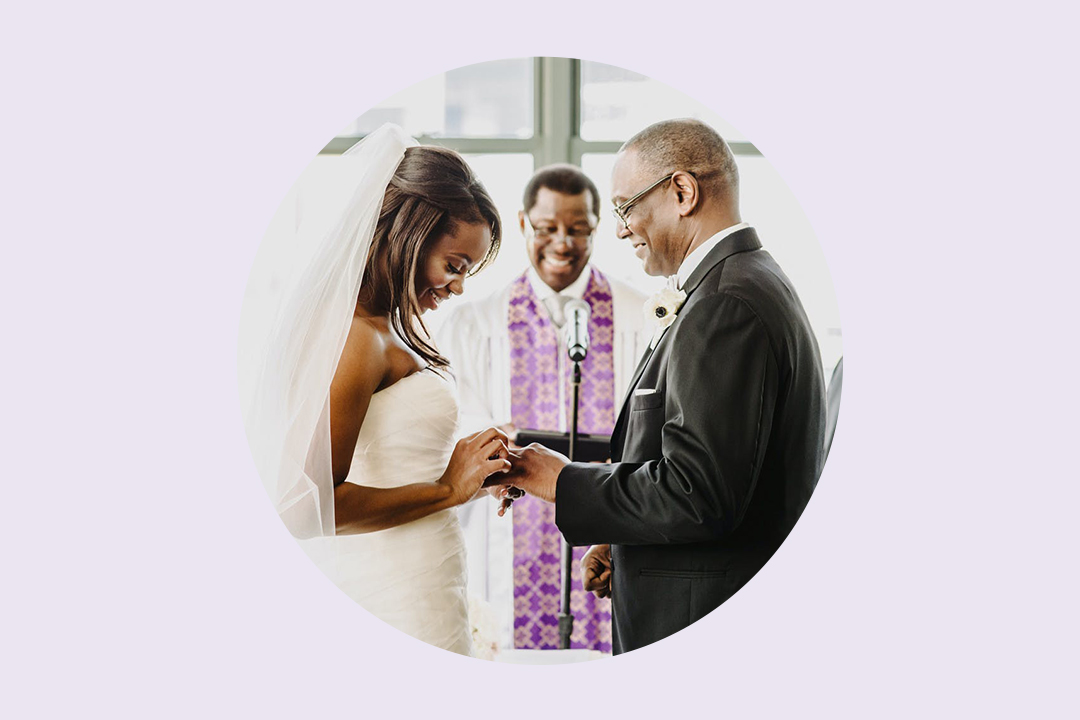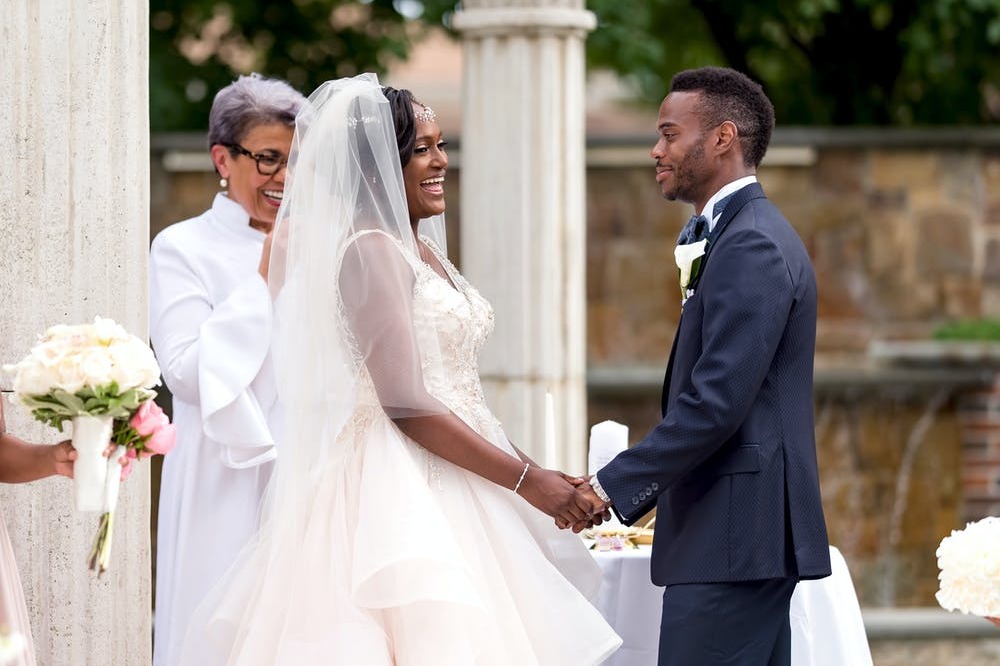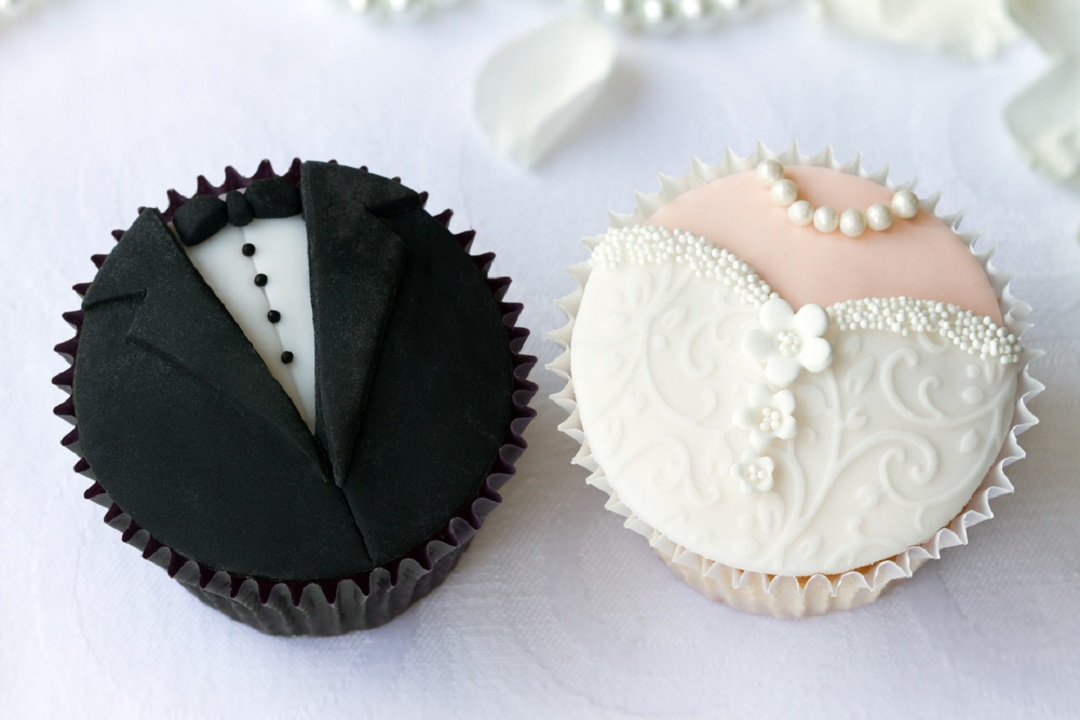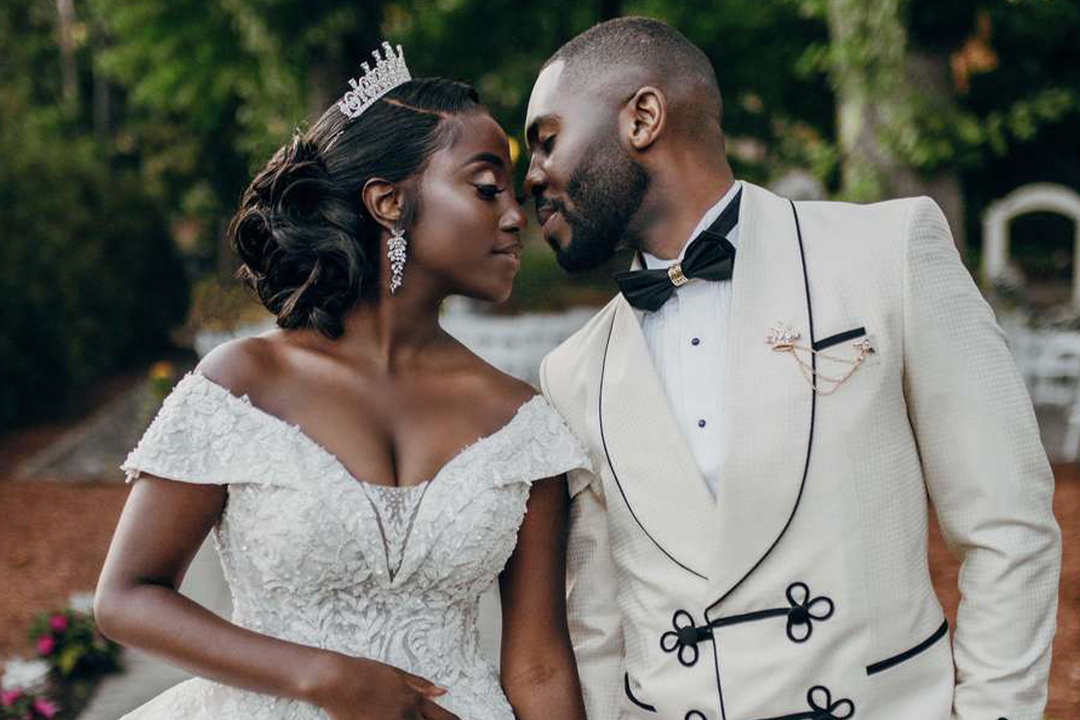- Expert advice/
- Wedding planning 101/
- Wedding decorations/
- Best Ways To Incorporate Tasting the Four Elements In Your Wedding
- Wedding decorations
Best Ways To Incorporate Tasting the Four Elements In Your Wedding
The four elements, adapted from a tradition of the Yorùbá people, are a lovely addition to a wedding ceremony. Here are some ways to integrate the tradition into your wedding.
Last updated February 5, 2024

There are many ways to pay respect to your culture and history on your big day. Amongst Black communities, there are plenty of African wedding traditions, as well as traditions from Black American history to incorporate into a wedding. From jumping the broom to knocking on the door, paying respect to Black heritage and Black culture at a wedding can be a beautifully-achieved personal touch.
One African wedding tradition is the tasting of the four elements, a ritual from the Yorùbá people where the newlyweds taste the four flavors intended to represent different stages of marriage: bitter, sour, hot, and, of course, sweet. Looking for a unique and memorable way to integrate this tradition into your wedding? You've come to the right place.

What Are the Four Elements?
Western marriage ceremonies typically have a spiel about “for better or worse, for richer or poorer, in sickness and in health,” while the four elements are a variation of that, adapted from a tradition of the Yorùbá people. During the ceremony, the newlyweds take tastes of four flavors intended to represent stages of marriage. Traditionally, these are represented by cayenne for heat, lemon for sourness, vinegar for bitterness, and honey for sweetness. It’s a much more symbolic way of showing off the bond of the marrying couple, and it’s amusing to the guests, who love to see the different faces that the couple makes with each tasting.
How Are the Four Elements Presented?
The tradition of the four elements takes place during the wedding ceremony, whenever the newlyweds decide to incorporate it. The tradition can be in place of Western traditional wedding vows, or in addition to them. However the flow of the ceremony, it's an easy ceremony to slip in and introduce to your guests. You can choose to have the four elements presented on decorative plates or in glasses—just make sure that you designate a member of your wedding party to be in charge of presentation and clean up.
What Are Some Ways to Represent the Four Elements at Your Wedding?
Traditionally, the four elements ceremony is represented by vinegar, lemon, cayenne pepper, and honey, but you can absolutely play with tradition and make it your own. You may decide to instruct your officiant to guide you, your partner, and the audience through the ceremony by asking him or her to write their own and explain what each flavor represents. Or, consider researching verbiage for a ceremony of your own.
Sour
You and your partner will be encouraged to taste the sour first—intended to represent the times that are less than perfect in your relationship and your promise to support each other through anything, without question or judgment. Traditionally, the couple would taste a lemon, but here are other sour foods that you can integrate:
- Grapefruit
- Rhubarb
- Kumquats
- Tamarind
- Limes
- Cranberries
Bitter
Bitter follows, to represent feelings of denial, rejection, or jealousy. Will you promise to move past these feelings together through the strength of your relationship, or will you let bitterness take hold? If so, you can have a taste of vinegar, or any of these other notably bitter foods:
- Citrus peel
- Cranberries (if not used with sour)
- Dandelion greens
- Arugula
- Kale
- Unsweetened cocoa
Heat
Up next is heat, which is supposed to not only represent the spice and passion of the love between you and your partner, but also the desires that come from the deepest, hottest part of their core. Whether that's anger, passion, or anything in between, you two are promising to express those deep, hot, passionate feelings with support and encouragement in your relationship. Taste cayenne pepper, or try any of these spicy ingredients:
- Ginger
- Radishes
- Cumin
- Jalapenos
- Chili pepper
- Sriracha
Sweet

And, finally, the grand finale: sweet. You'll have plenty of sweets on your wedding day (because you tied the knot for the wedding cake, right?) so consider this a bonus amuse-bouche for you and your partner in anticipation of the dessert that's coming later. Here, you and your partner will share something sugary to represent all the sweetness coming your way in your relationship. Of course, sweetness is traditionally represented by honey, but you can choose any sweet of your liking:
- Strawberries
- Cherries
- Pastries
- Dates
- Cookies
- Ice cream
Your wedding is intended to be a representation of you and your partner in every shape and form—your history, your religion, your heritage, your culture, and the blending of all of those between the two of you. The four elements are rooted in Black and African tradition and can make a lovely and surprising part of any wedding ceremony.
Up next for you

What Is Jumping The Broom? History & Meaning
Advice
Explore the meaning and history of "Jumping the Broom" in weddings. Discover how this tradition symbolizes unity and love, adding a meaningful touch to your special day.

The Wedding Traditions We'll See in 2022—And The Ones We Won't
List
In Zola’s First Look Report, over 3,000 engaged couples shared the wedding traditions that they’re keeping, leaving, and are split on for their 2022 weddings. Here’s what they had to say.

Top Black Wedding Vendors You Should Know About
List
Here are some of the top Black wedding vendors ready to create the celebration that's perfect for you.
- Expert advice/
- Wedding planning 101/
- Wedding decorations/
- Best Ways To Incorporate Tasting the Four Elements In Your Wedding
Find even more wedding ideas, inspo, tips, and tricks
We’ve got wedding planning advice on everything from save the dates to wedding cakes.
